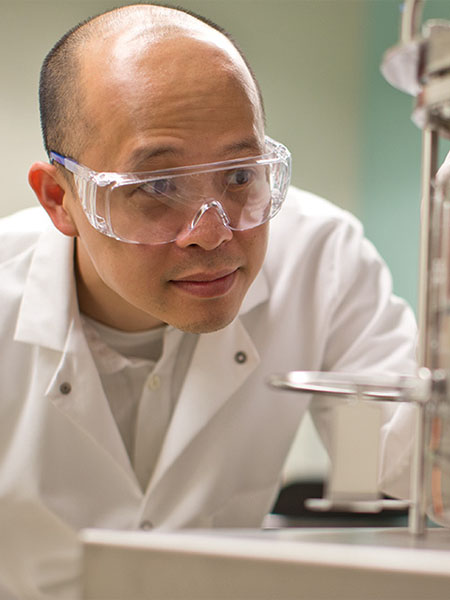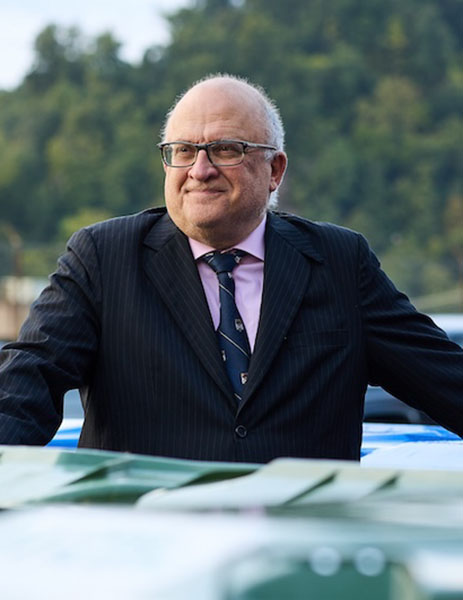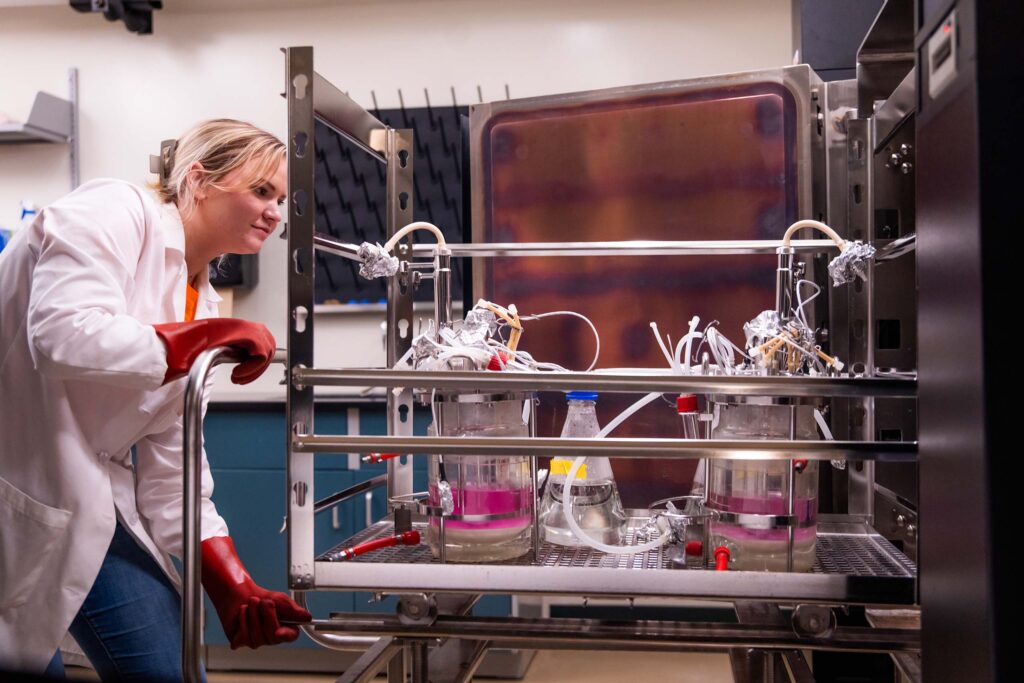Alternative Fuels
Preparing renewable and low-carbon fuels to meet real-world needs

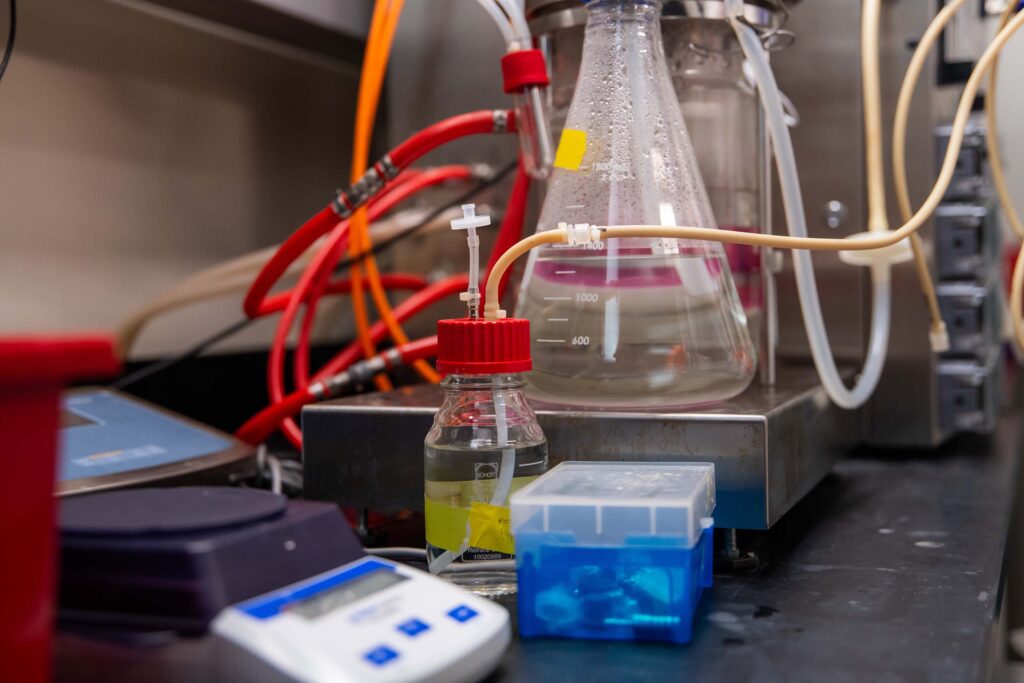

Low-carbon alternative fuels will facilitate the transition from fossil fuels in more ways than one. Cars and trucks already on the road may soon be able to run on biofuels derived from plants. Biofuels and hydrogen combustion engines can help decarbonize aviation, while hydrogen fuel cells may shape the future of US freight hauling.
Our interdisciplinary research on fuels creates opportunities to efficiently and economically reduce mobility’s carbon footprint and secure US energy independence.

UT’s Approach
The decarbonization of transportation is essential, but electrification is not the only option—or even the most viable—for every mode of transportation. By researching and developing low-carbon high-performance biofuels and hydrogen fuels, we are building a bridge to a clean mobility future and creating energy options that complement electrification solutions.
UT faculty use various methods to understand and improve biofuel production’s environmental sustainability, economic viability, and real-world performance. Researchers at the Center for Renewable Carbon, for example, are working to reduce the overall carbon intensity of sustainable aviation fuel by improving biomass cultivation in the Southeast while contributing to a regional circular bioeconomy.
Faculty from multiple disciplines are exploring the fundamental principles behind efficiently converting plant matter into fuel using catalysts, heat, and bacteria. Other researchers are investigating how to maximize the potential of specific plant species, plant components such as lignin, and new biorefining processes.
UT researchers are exploring fuel cells as additional alternatives to fossil fuels. Researchers use UT facilities in Knoxville and Tullahoma and resources at Oak Ridge National Laboratory to study next-generation fuel cells, with an emphasis on improving internal membranes.
Hydrogen fuel cells, in particular, hold great promise for US long-haul trucking. As a partner in the Million Mile Fuel Cell Truck Consortium, UT’s ultimate goal is to increase fuel cell durability and decrease the cost of ownership, making hydrogen fuel cells more competitive with conventional diesel systems.
“When you combine UT’s strengths in this space, Tennessee’s mobility and biomass industries, and collaboration with ORNL, we are pushing the limits of science forward.”
—Niki Labbé, Professor & Assistant Director, Center for Renewable Carbon
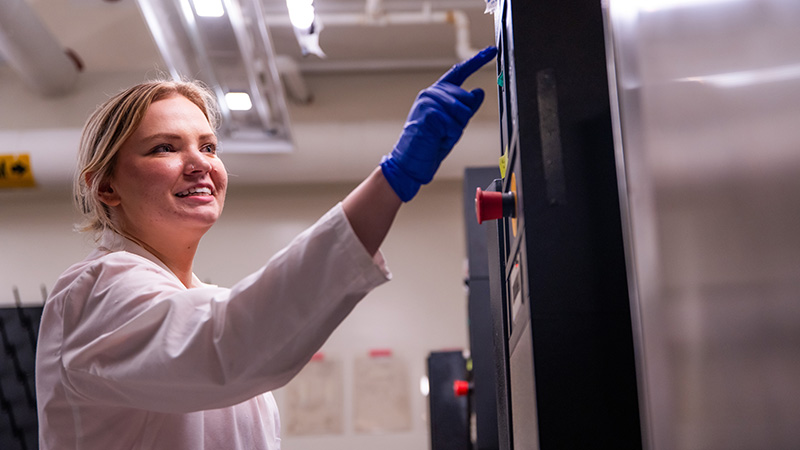
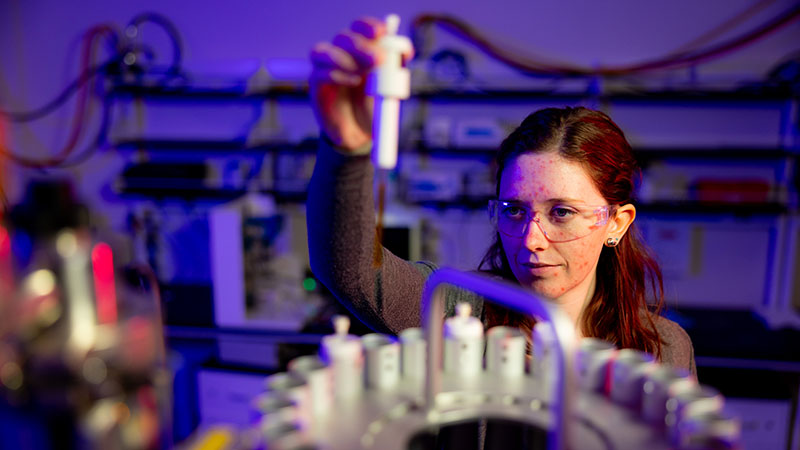

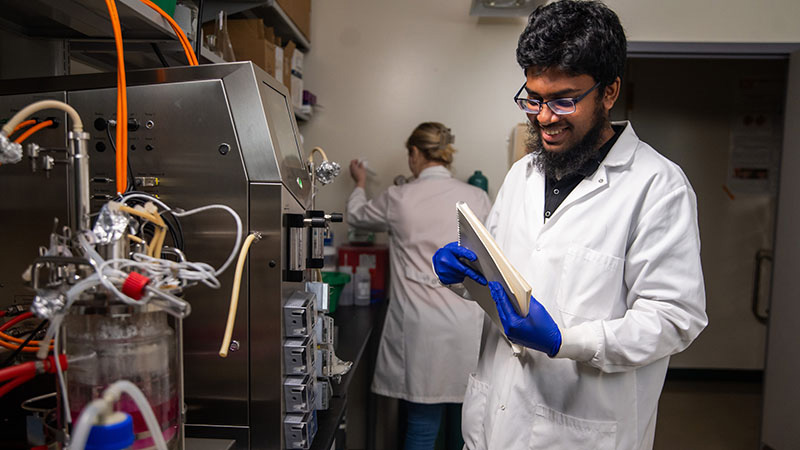
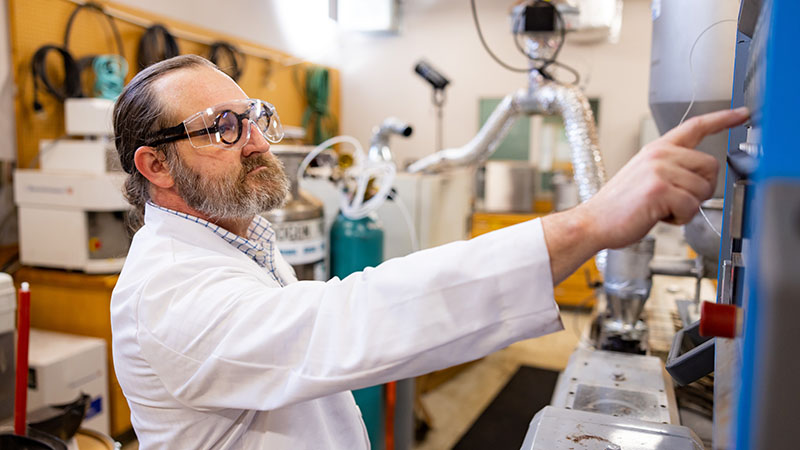
Highlights
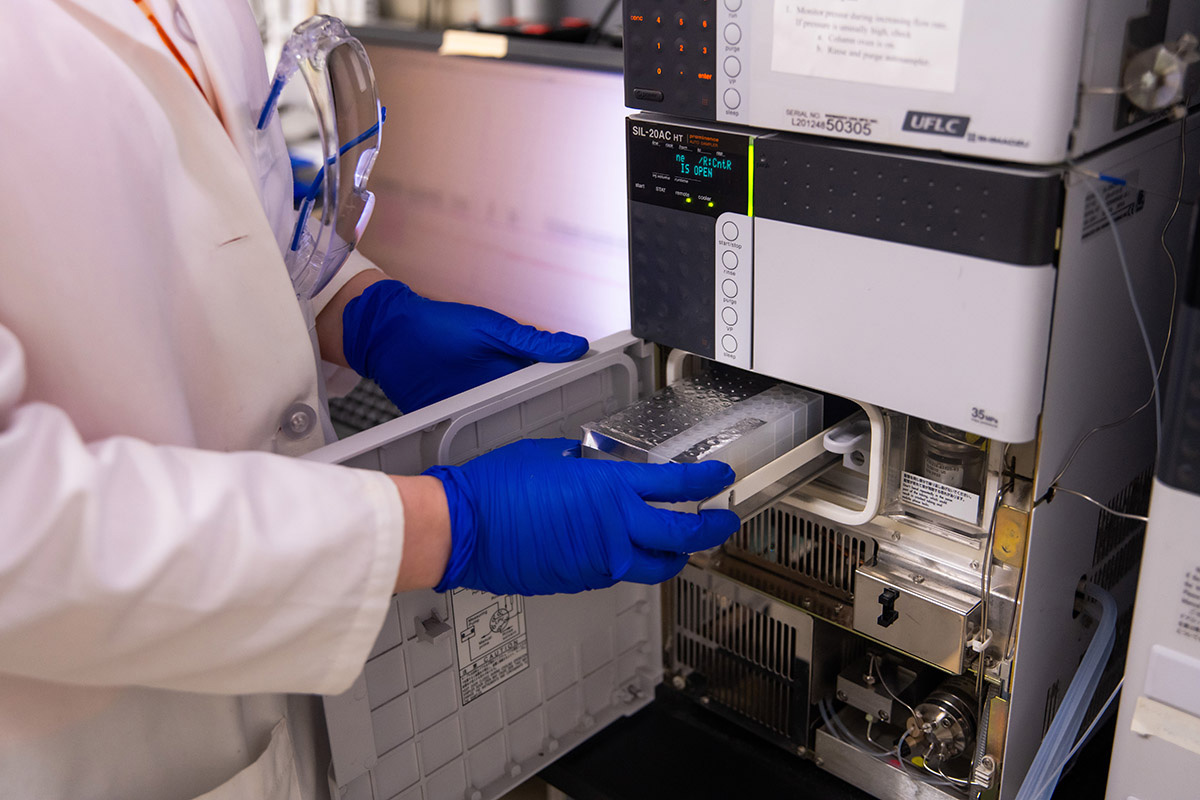
Our Researchers
-

Assistant Department Head, Mechanical, Aerospace & Biomedical Engineering
Electrochemical systems (batteries, fuel cells, electrolyzers) relevant to vehicle electrification; grid stability; and energy storage
-
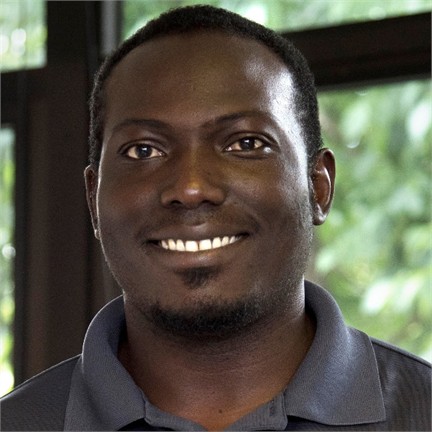
Associate Professor, Biosystems Engineering and Soil Science
Biomass conversion and modeling, advanced biofuels and bioproducts
-
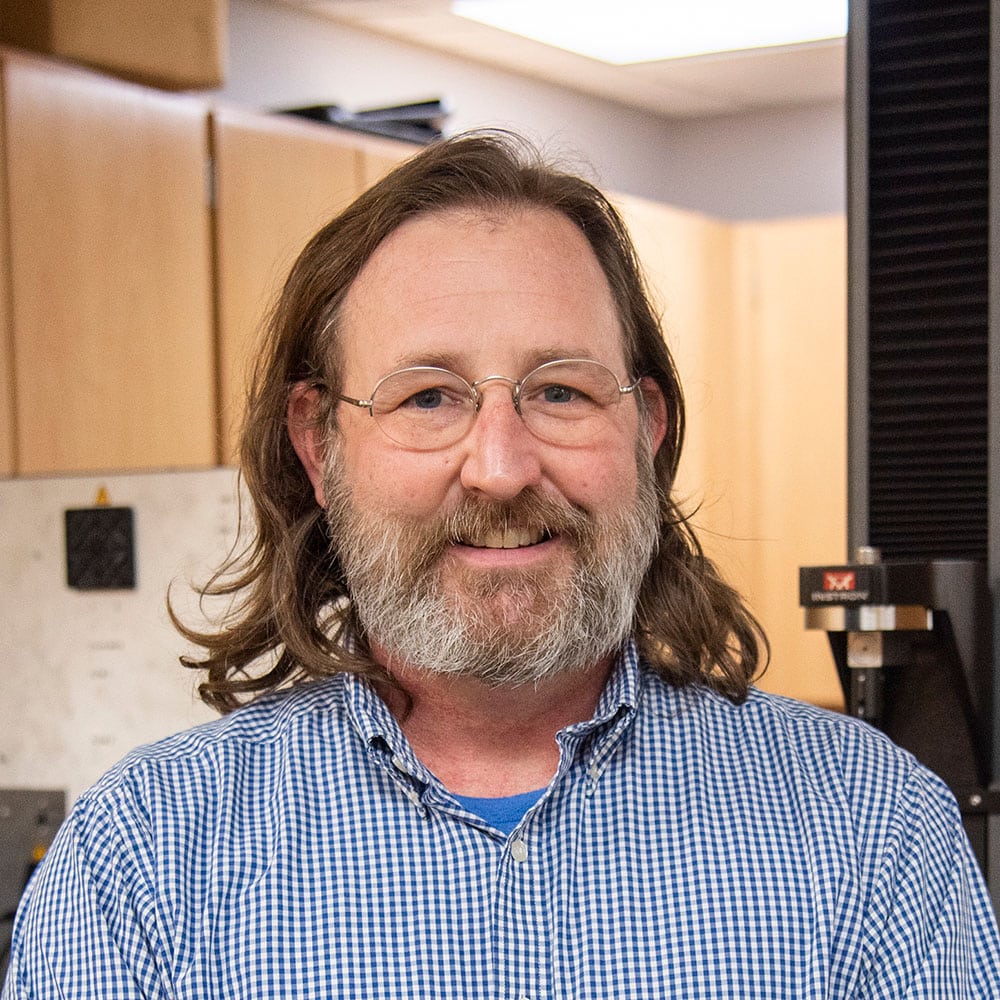
Professor, School of Natural Resources
Carbon materials, natural fiber composites, composite processing, biopolymers, adhesion, rheology, thermal analysis, kinetic modeling, mechanics
-

Professor & Assistant Director, Center for Renewable Carbon
Novel approaches to deconstruct lignocellulosic biomass and fabricate bio-based products, high throughput techniques coupled with multivariate statistical analyses for monitoring biomass quality and performance at various scales
-

Wayne T. Davis Dean’s Chair, Tickle College of Engineering & Chancellor’s Professor
Electrochemical power conversion and storage including polymer electrolyte fuel cells, flow battery systems, and biological energy systems; multi-phase transport visualization and characterization; computational simulation of electrochemical power conversion and storage systems
-

Director, East Tennessee Clean Fuels
Alternative fuel vehicle technology adoption, fleet, outreach, education, grant assistance, program management, natural gas, electric, propane, biodiesel, ethanol, electric vehicles
-
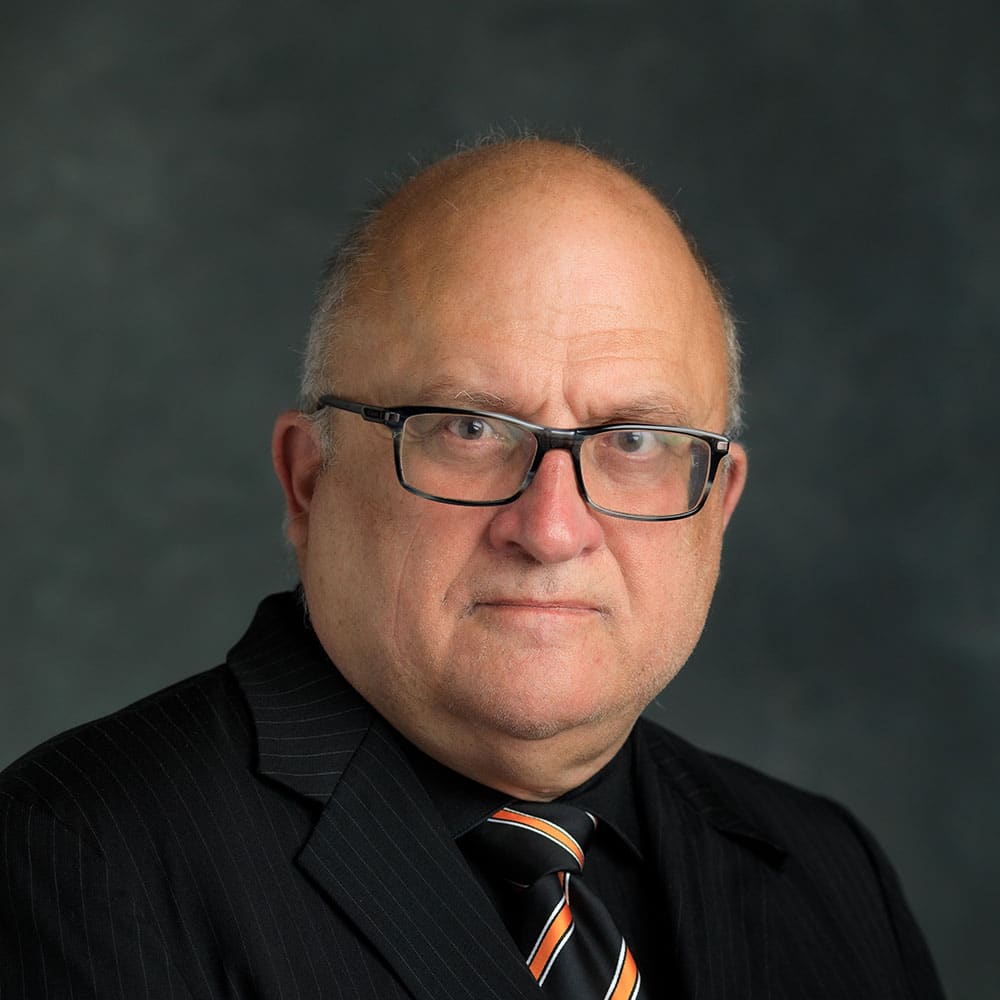
UT–ORNL Governor’s Chair for Biorefining
Biofuels, bio-derived materials; chemical engineering, forestry sciences, environmental science and management, materials engineering, organic chemistry, food science, macromolecular and materials chemistry
-

UT-ORNL Governor’s Chair for Electrical Energy Conversion & Storage
Electrolytes and composite electrodes for fuel cells, fundamentals of energy storage materials and systems, water management in fuel cells
-

Associate Professor, Mechanical, Aerospace & Biomedical Engineering
Battery safety, thermal management, low carbon fuels, advanced combustion strategy, engine-fuel interaction

